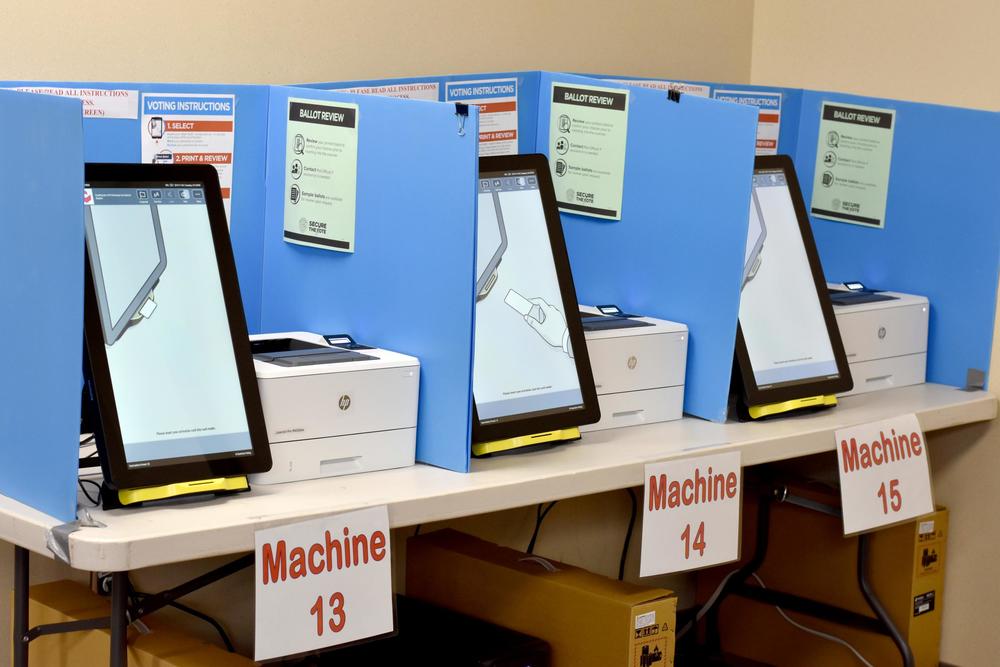
Section Branding
Header Content
Judge Yet Again Denies Request To Move Georgia To Hand-Marked Paper Ballots
Primary Content

A federal judge has denied a request to switch Georgia's election to hand-marked paper ballots for the November election, hours before in-person early voting is set to begin in a state that is the epicenter of the fight for voting rights.
In a 147-page order issued late Sunday, Judge Amy Totenberg said that while there were concerns with Georgia's new ballot-marking device system and the state's implementation of it, making changes this close to the election "could cause electoral disruption and potential voter confusion."
READ THE ORDER
Totenberg likened the years-long lawsuit to the movie “Groundhog Day,” where protagonist Phil Connors is doomed to repeat the same day over and over again.
“Amidst the many other serious concerns facing the public in this challenging era, issues surrounding election system security, reliability, fairness, and the correct counting of votes continue on the forefront of citizen concerns,” she wrote. “And so too, in turn, does voting litigation perforce continue.”
While acknowledging the work that state and local officials have done to prepare for the election, Totenberg also castigated the secretary of state's office for not addressing cybersecurity concerns brought forth by an election integrity group and several Georgia voters in the suit.
"Though major difficulties have arisen during the course of this new system’s rocky first year, the Court recognizes that the staff of the Secretary of State’s Office and county election offices have worked hard to roll out the system in short order during a COVID-19 pandemic era that presents unique hurdles," she wrote. "That hard work though does not answer the fundamental deficits and exposure in the system challenged by Plaintiffs."
There will be some changes following the November election, specifically regarding the threshold settings for scanners that read and tabulate hand-marked absentee ballots.
Plaintiffs in the case argued that the settings used improperly discarded marks that a human would decipher as votes. In response to the concerns, the State Election Board voted to lower the threshold to count any mark that fills more than 20% of the oval as a vote, anything less than 10% as no vote and between those two would go to a three-person review panel.
Totenberg wrote that relief is warranted, but recognized there would be no "instant fix" of the issue and changes would be implemented if possible by the January 2021 runoff election.
This order comes on the eve of in-person early voting starting statewide on Monday in an election that more than 430,000 have already voted in, and one where officials anticipate 5 million Georgians could cast their ballots.
"The Court recognizes the major challenges facing the Secretary of State’s Office in rapidly implementing a new statewide voting system," she wrote. "Yet the vital issues identified in this case will not disappear or be appropriately addressed without focused State attention, resources, ongoing serious evaluation by independent cybersecurity experts, and open-mindedness."
Totenberg previously ruled against ditching electronic voting three other times in 2018, 2019 and earlier in 2020.
"While Plaintiffs have shown the threat of real harms to their constitutional interests, the eleventh-hour timing of their motions and an instant grant of the paper ballot relief requested could just as readily jeopardize the upcoming elections, voter turnout, and the orderly administration of the election," Totenberg wrote two years ago.
The 2019 decision also banned the use of Georgia's outdated touchscreen direct-recording electronic voting machines starting in 2020.

